Expendables of the “Quota” System
Former policemen and “regular” attesting witnesses who fabricated drug trafficking cases against 17 people are being tried in Samara. The study performed by Important Stories shows that this is only a small part of a large-scale scheme, designed to fabricate “drug” related cases in the region: 86 fake attesting witnesses who took part in 269 cases were identified
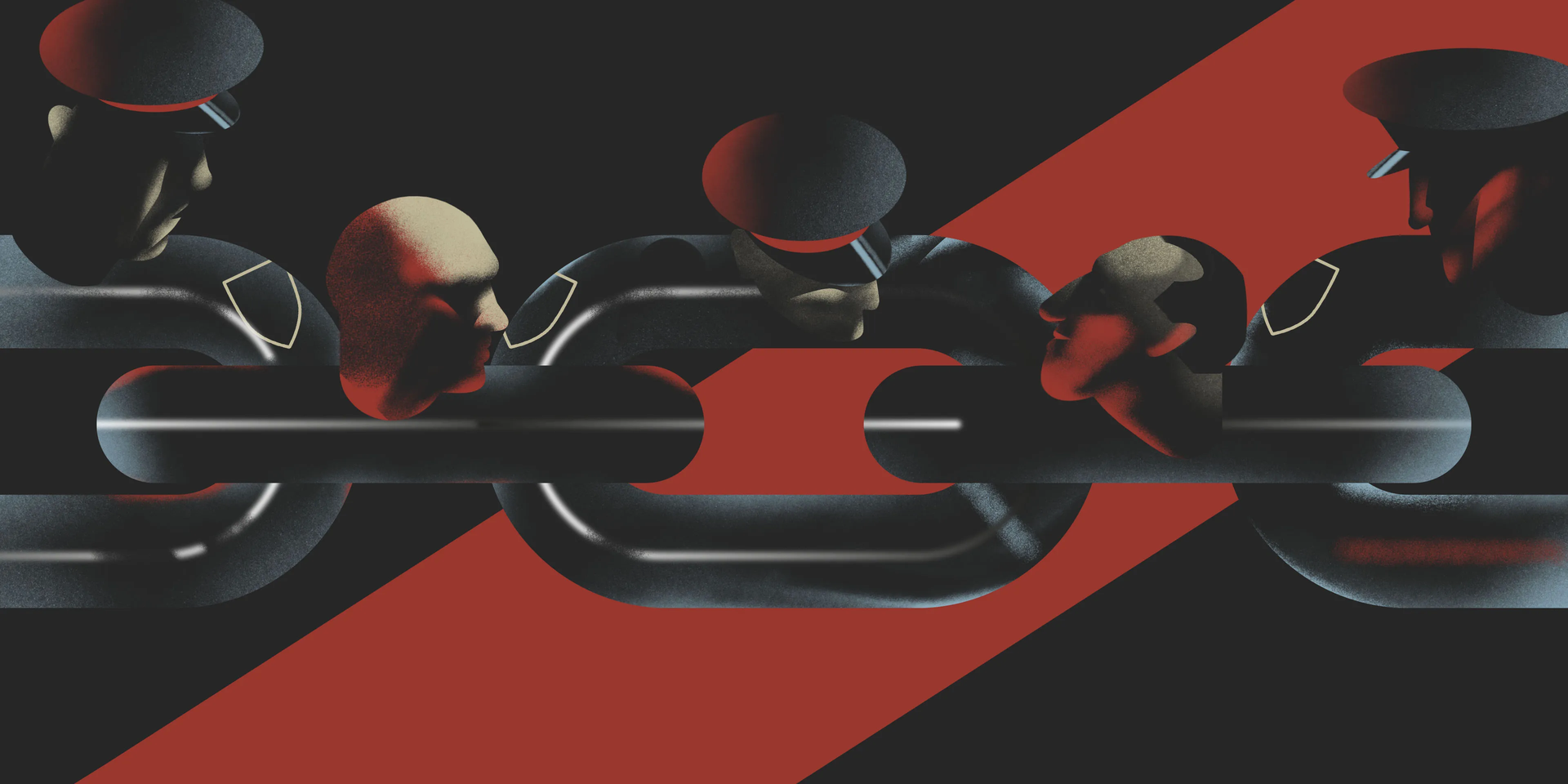
By all means unique trial is being held in Samara since October 2020, where six former drug control operatives are being prosecuted. Among charges are: torture, drug planting, fraud and falsification of criminal cases in the span of two years, from 2015 to 2017. Along with the former policemen 15 locals, who helped falsify cases by acting as fake witnesses and undercover drug buyers in police operations, are also among the defendants. Almost all the falsification victims are still in custody, claiming they gave confessions under threats and that all the cases against them are fabricated by the police and dummy witnesses.
Our reporters visited Samara to talk to the illegally imprisoned and the ones who did this.
“There's an object and they have a tick, promotion, clearance rate”
“This is the place where we were detained. This is the bank, the state university, the car park,” says Boris Astashkin. He is 61 years old and has spent his whole life in the Samara region. In May 2016, four men in civilian clothes approached him and his partner Svetlana in the car park. One of them twisted Boris' arm. The men did not show any identification, but said they were from the police.
“They searched and didn't find anything. I looked and one of them was pointing his head at the other — there was nothing. I said to him 'What, no luck, it's not your day, is it?' Well, he didn't hold back either, he said, 'We'll fix it in a minute!' And that's when it all started,” recalls Boris.
A month later Astashkin was found guilty of illegal possession and sale of drugs on a large scale. The Zheleznodorozhny District Court in Samara sent him to a high-security penal colony for four years and two months. According to Boris, he was not involved in selling drugs and on the evening of the arrest he and his partner did not have anything illegal in their possession.
At the police station, Boris and Svetlana were separated. “All the pressure was on my companion. They suggested to me in the office: 'Go ahead and sign, everything will be fine'. I know I have nothing, why would I sign anything? And when all arguments were exhausted, they opened the door as if by accident, and I saw such a picture in the office opposite: an operative was standing in front of her [Svetlana], his sleeves rolled up, he was bending a baton and said: 'I'm going to ***** [rape] you with a baton! '”
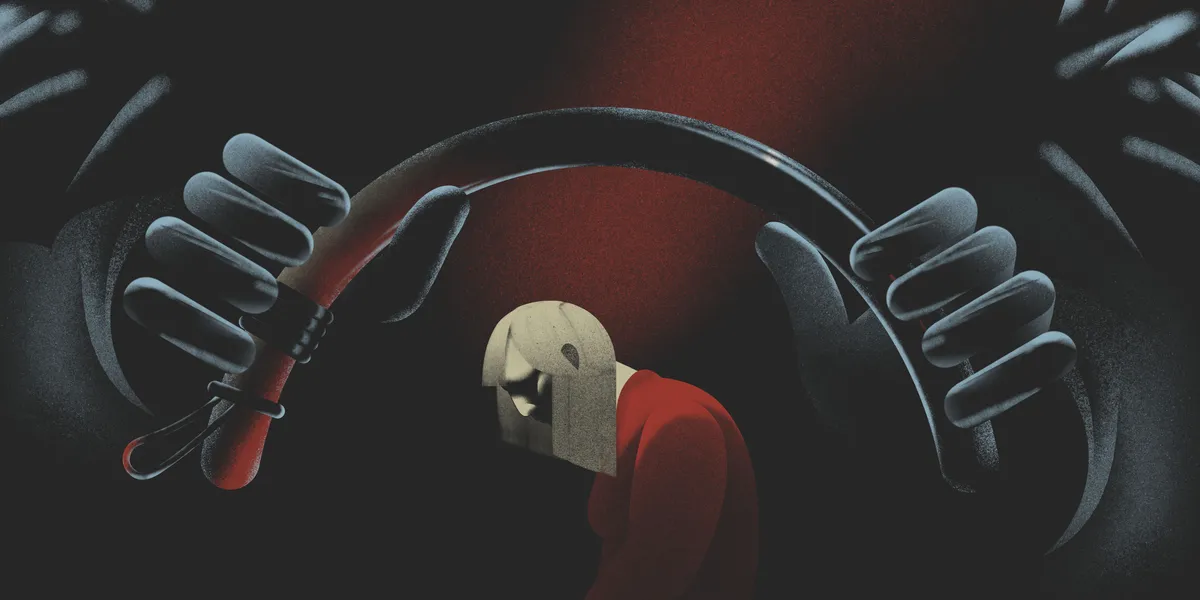
Boris then agreed to sign the reports and the testimony about the illegal possession of drugs if Svetlana would be released. A taxi was called for her, she came home, called and said she was fine. Boris signed everything. According to Astashkin, he had poor eyesight (plus seven) and did not have the right glasses with him, so he could not read the documents. Boris only found out three days later in the detention centre that in addition to the illegal possession of drugs, he was also accused of selling drugs on a large scale: a cellmate read the documents aloud to him.
Boris assumes that the operatives took him in because he has a “suitable” background: “I'm not all white and fluffy either. I've been in prison more than once, I've occasionally allowed myself to use [heroin], but I've been able to control myself and I've never had any treatment. But they didn't bother to catch me at the time of purchase. Why sit in the bushes when they always had everything in their pocket? And so there's the object, and they get a tick, promotion, clearance rate.”
“You will never get out”
Oleg Pokashlev and Sergei Yudin met in prison in 2009. Pokashlev was jailed for car theft at the time. After his release, he went to work as an electrician, maintaining residential buildings, and then he hired Yudin as his assistant. Both were occasional heroin users. In March 2016, the same Samara drug control officers who had detained Boris Astashkin a couple of months later, found rolls of drugs in Yudin's back room. They also decided to take Pokashlev to the police station.
“We were brought to the police station. One of the officers said [about me]: 'That one works as an electrician. We don't need him'. After that, another officer, Sergei Hranovsky, invited me to step back with him,” Oleg Pokashlev recalls. According to him, the operative told him to bring ten thousand rubles in an hour in exchange for his freedom.
In an hour Oleg managed to find only half of the amount. He promised Hranovsky that he would bring the remaining five thousand later, but he never did. Soon he was detained again: Oleg believes it was because he could not pay the policeman on time. During the second detention, according to Pokashlev, the operatives already threatened to “cripple him”.
“When they take you there [to the police station] and there are no defenders, no one — just a gang of five people — you know you'll never get out of there - I said: 'Draw up the first part for me' and they draw up sales (Criminal Code article 228.1, part 1 — illegal drug possession — Ed.note) and say: 'We don't run a possession organization. We have either distribution or large-scale distribution.' Naturally, I will sign what they say, only in a smaller amount. Why? I'm a convicted felon. They'll kick me, disfigure me and I'll sign not the first part [of article 228.1], but the third or fourth (distribution on a large or significant scale — Ed.note), or even the fifth (distribution on an especially large scale — Ed.note)”.
Oleg says that at the police station the operatives gave him a piece of paper with testimony that he had to learn and retell to the investigator. Instead, Pokashlev, together with his lawyer, first tried to explain to the investigator how things really happened, but she, according to Oleg, asked her “not to bring it up”. Then operatives looked into the office and rushed Pokashlev, at which point he told the policewoman: “Write what you were told [on the sheet]”.
The Zheleznodorozhny District Court in Samara found Oleg Pokashlev guilty of drug trafficking and sentenced him to four years in a strict regime colony. According to Oleg, judge Svetlana Efremova, who handed down the sentence, noted after the hearing that she “did all she could for him — gave him the minimum punishment”. “She said: 'You won't have friends like that,' — Pokashlev recounts the conversation with the judge. — What's that got to do with time? What difference does it make what kind of friend you have? I lived with my family, I was not involved in criminal activity. Do I have to go to jail for the full, fabricated sale?”
Sergei Yudin, in whose possession the operatives found heroin, was sentenced to eight years for selling drugs. He is now being treated as one of the victims in the Samara case and is trying to prove that he was not involved in heroin sales.
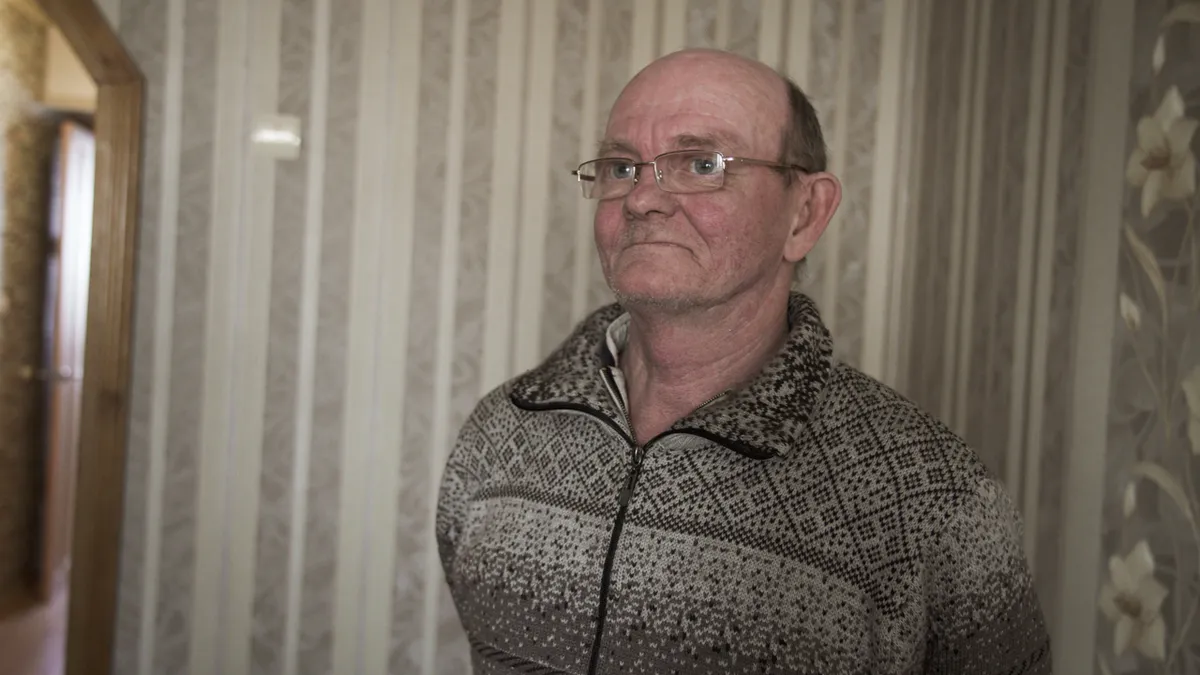
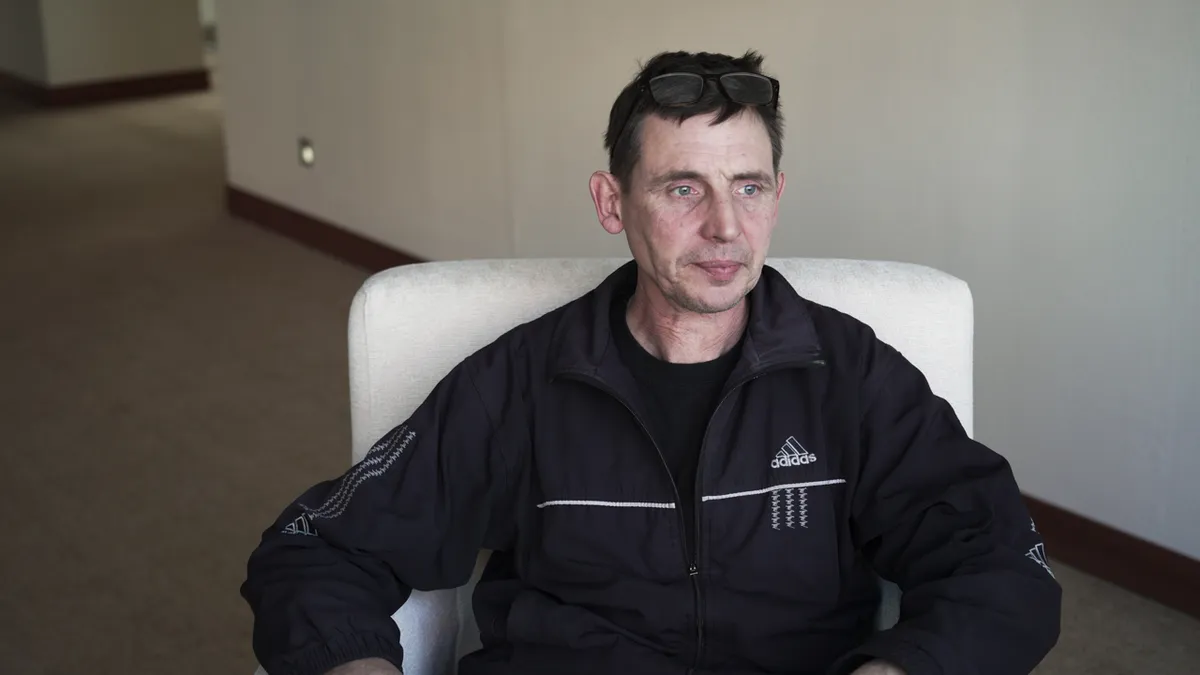
“I'm just as expendable as they are”
Boris Astashkin and Oleg Pokashlev were released in 2020. Now they, like Sergei Yudin, are the victims in the Samara case. Together with fifteen others convicted of drug trafficking (almost all of whom are still in prison), they are trying to prove that they confessed to the crimes under torture or threats, and the criminal cases were fabricated by six Samara drug control officers: Pavel Bormotov, Andrey Zlenko, Dinoslam Kanyarov, Alexander Putyatin, Sergey Khranovsky and Boris Chernov. In addition to the operatives, there were 15 “regular” witnesses and buyers in the dock. According to the documents, they allegedly bought drugs under the control of the police or monitored all the necessary investigative measures, such as searches and body searches. According to the investigation, from 2015 to 2017, these 15 people regularly cooperated with the police, taking turns acting as witnesses and purchasers and signing the necessary protocols.
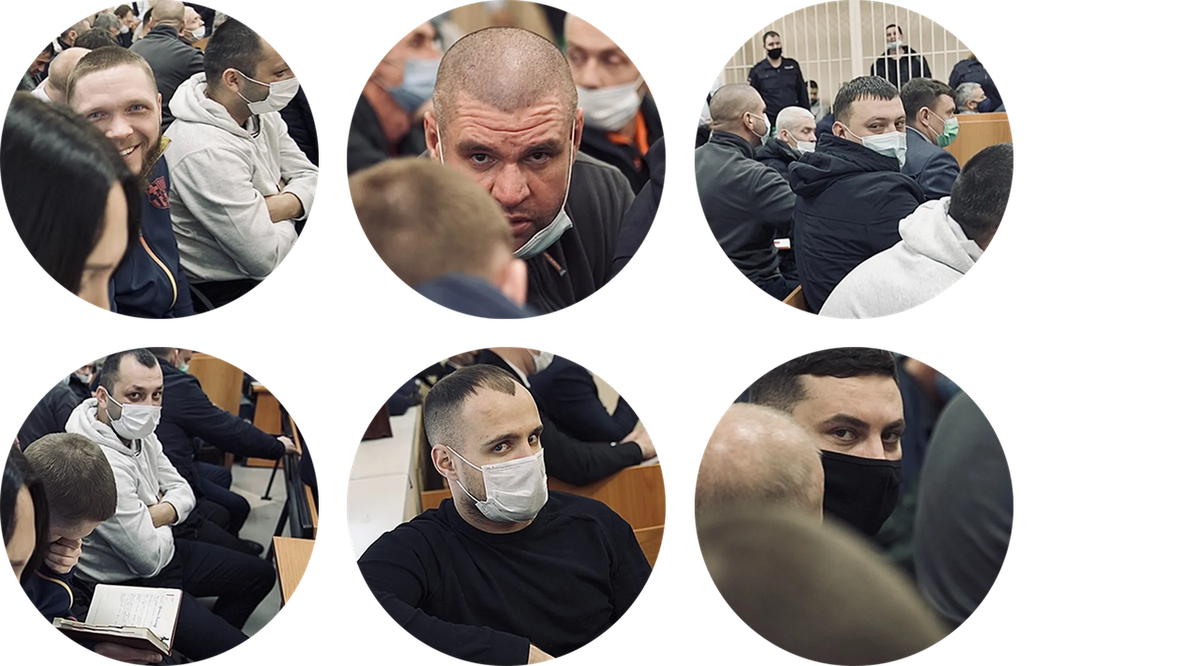
IStories visited one of the hearings in the Samara case in March 2021 and spoke to some of the defendants and victims. One of the defendants, Istvan Sibgatullin, who had previously acted as a procurer and witness, confidently and sadly told a reporter that “his future is in prison”: “They [the police] gave us documents to sign, but I don't understand these documents. They were saying that everything was fine, everything was legal. Well, as long as it's legal, I put my signatures — I trust the police officers.”
— Why did you speak at the trial later and say something that didn't happen?
— I didn't know it didn't happen. I have a testimony there, for example, that I saw them seizing drugs. Turns out they didn't. Well, I don't know how to do it right.
— Why were you helping them in the first place?
— Well, it's not exactly helping...
— Did they pay you?
— It’s not that they were paying... I can't explain. You unconsciously did it today, unconsciously did it tomorrow. And then you sit at home and start thinking. In the dialogues [with operatives] there was a subtle hint: “If you refuse, the same thing will happen to you”. They make it clear: either we cooperate or everything will be sad for you — you will go to jail.
— Did you communicate with the victims?
— I still do.
— Did they tell you that you set them up?
— They understand that I am just as expendable as they are.
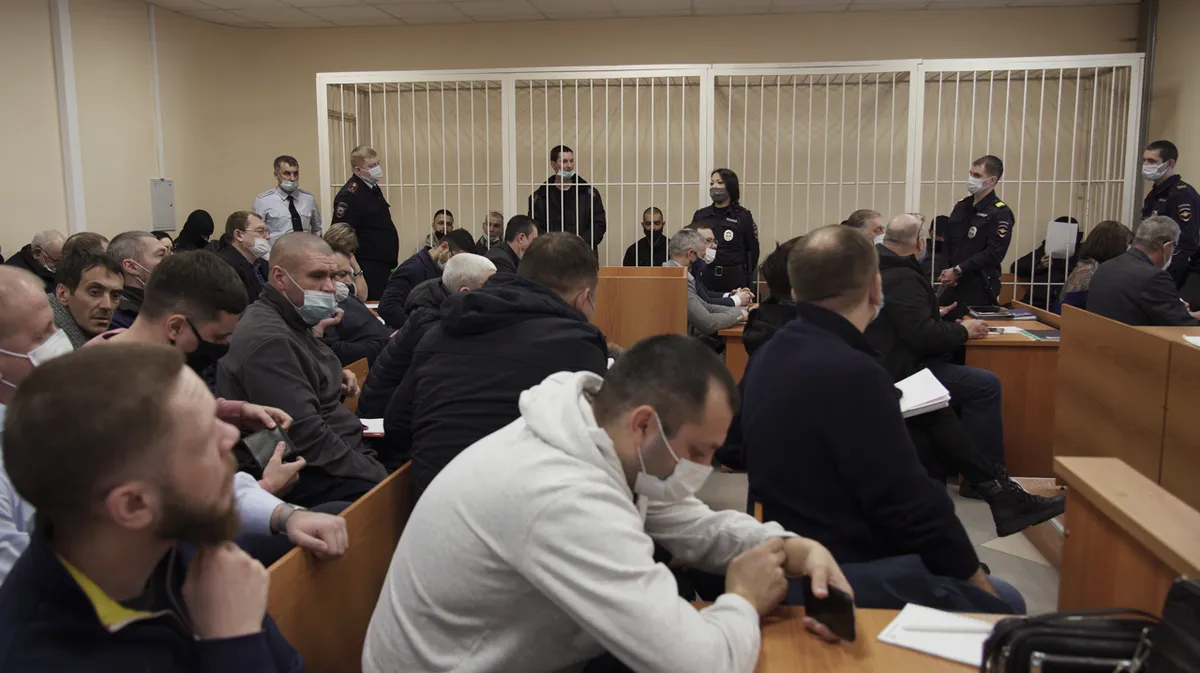
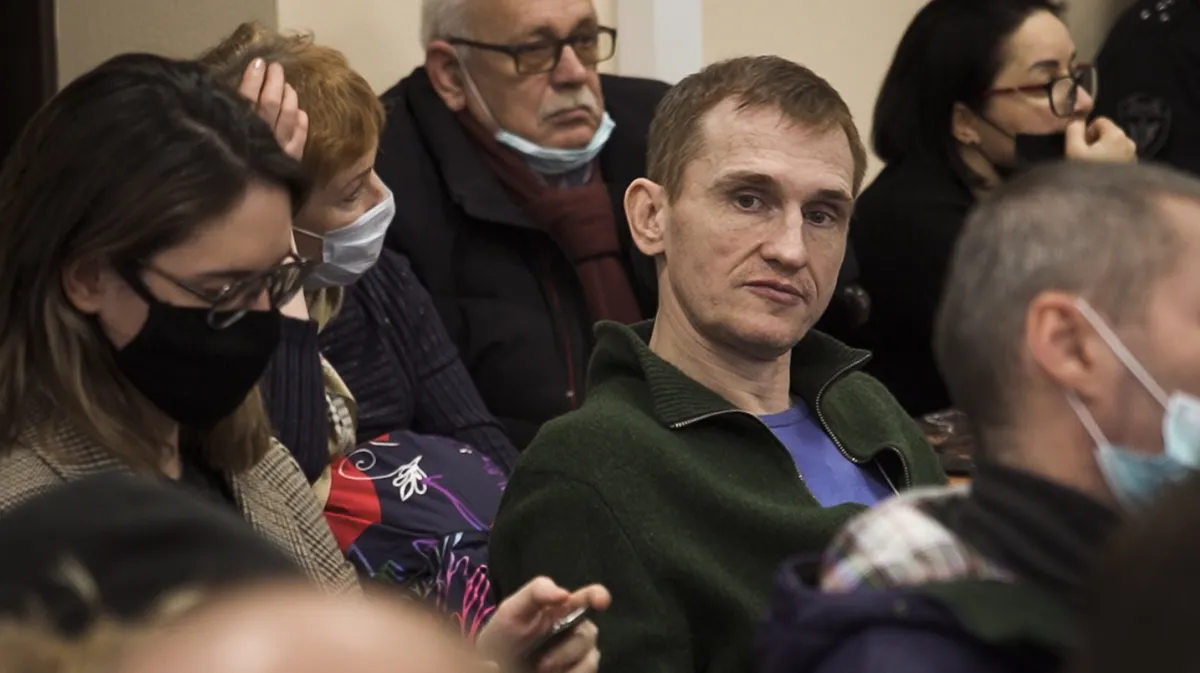
Although Sibgatullin claims that he assisted the operatives “unknowingly” and did not know “how to do it properly”, in the courts he has repeatedly recounted non-existent events in which he allegedly personally took part. For example, he described how he met the defendants, arranged the meetings and bought drugs from them at the request of the police. In fact he was not even acquainted with them at that time.
The investigation suggested that in exchange for their signatures on the statements in the reports and court testimony, the drug-dependent witnesses were given money and drugs by the operatives. Moreover, they kept their freedom: in exchange for their services the police officers did not initiate criminal proceedings against them. During the investigation, the accused operatives claimed that all the “regular” witnesses knew that they were involved in the falsification.
This was confirmed by another defendant, Maxim Krats. He, for example, acted as a procurer in the case of Boris Astashkin and also became a false witness on several occasions. In his testimony during the investigation, Krats said that he “understood that such paperwork was illegal, as he had not actually participated in the operational investigative activities and had not purchased any drugs from V. Astashkin.” Kratz claims he was forced to accept the officers' offer because he was “afraid that if he refused, they might plant drugs on him and prosecute him, as they had previously hinted at it on several occasions”. Typically, he would sign the necessary documents without reading them and go home. When Krats was summoned for interrogation, he was given a sheet with the protocols already printed on it, which he also signed without reading. At the trial he also gave false testimony — in particular, about how he bought drugs from Boris Astashkin.
The victims say that they repeatedly tried to draw the judges' attention to the strange behaviour of the witnesses. For instance, the mother of Aleksandr Sharomov, who was sentenced to 10 years for drug trafficking, recalled in a conversation with IStories how during a break in her son's case one of the witnesses, Alexey Mescheryakov, drank alcohol on the bench, fell asleep and fell to the floor. The defendant's lawyer told the judge about this, but the interrogation of the witness continued and his testimony was accepted.
According to the lawyer of the human rights organisation "Public Verdict" (The organisation is on the list of NGOs that perform the functions of "foreign agents". By law we are obliged to indicate this, despite the fact that IStories believes that such laws contradict the Constitution) Dmitry Egoshin, who acts as defendant's lawyer for seven victims in the “Samara case”, the judges in his clients' cases did not have any questions for the witnesses:“How can you sit and watch when you have the same people coming to your trial? One day he is a procurer, the next day he is a witness. The judges were happy with that. The flow goes on and on. One of my clients also had a witness like that on trial who was stoned, falling asleep and falling down, not understanding the essence of the questions, mumbling something. Nevertheless, he was listened to and his testimony formed the basis for the prosecution.”
The Zheleznodorozhny District Court of Samara did not answer the question of IStories whether the judges were confused by the fact that the same witnesses and buyers came to their sessions again and again.
Samara network of “full-time” witnesses
Such witnesses did not only appear before the judges of the Zheleznodorozhny court. The IStories studied all the drug convictions in the Samara region and found that the “regular” or “full-time” witnesses from the “Samara case” were only a small part of a whole system used by police officers across the region.
Court clerks usually remove witnesses' names from the verdicts, but this is not always the case. Even in the small volume of documents from Samara region, where names were preserved, we found 86 “regular” witnesses and procurers who signed the protocols in 269 cases. Most of these witnesses were linked to one another: their names appeared in various combinations in the documents of the various defendants. Some of them were involved by police officers about 50 times.
For example, Leonid Suslov, who crossed paths with at least two witnesses from the “Samara case” (Denis Borisov and Anton Sery) was involved as a witness or buyer at least 48 times by officers of the Kirov district of Samara. Often the second witness paired with Suslov was Evgeny Efstifeev. He was a witness on at least 39 occasions. Seven other residents of the Samara region participated in investigative actions at least ten times.
In February, IStories and Meduza conducted a similar investigation and found 142 similar “full-time” witnesses in Moscow. Many of them turned out to be acquaintances of police officers, drug addicts or previously convicted, but judges generally turned a blind eye to this and credited their testimony. But none of the Moscow bogus witnesses appeared in the verdict texts as often as Suslov and Efstifeev, for example.
Judges of the Kirovsky District Court in Samara may have noticed that the same people regularly appear as witnesses for the prosecution at their hearings in different cases. Judge Alexander Mokeev saw the same Leonid Suslov at least eight times and his colleague Liya Pirozhkova at least seven times. All of the cases involving Suslov resulted in convictions.
The question of Important Stories as to why the judges were not confused by the same witnesses in different cases was not answered by the Kirov District Court.
Update: On 31 March, after the publication, the Kirov District Court replied to Important Stories that “the judge is not obliged to give any explanations on the merits of the cases considered or pending.”
Journalists found 86 “regular” witnesses in the verdicts of Samara courts (sentences were handed down under “drug-related” articles).
IStories unloaded 11 thousand documents from the website of the Russian State Automated System “Justice” on 12 so-called drug-related articles of the Criminal Code: 228, 228.1, 228.2, 228.3, 228.4, 229, 229.1, 230, 231, 232, 233, 234.
The texts of the verdicts and rulings usually include testimony from witnesses, buyers and police officers. Or at least the names of the people and their role, if the case was not heard in a special procedure (If the defendant admits guilt in full, he can apply for a special procedure, i.e. without examining the evidence in court — Ed. note). In most cases, court clerks replace the names in the text with abbreviations. But not always.
We extracted those names that were preserved in the verdict texts using programming (to find out exactly how we did it, see the Workshop — https://clck.ru/ahStq — issue on this). This is how we found repeated first and last names in documents from different cases. These cases indicated that the person had been involved in various processes and it was just a matter of figuring out in which role. Next we studied the documents: wrote down the dates, districts, circumstances of arrests, courts, police departments and their staff, investigators, prosecutors, lawyers and judges.
For a full list of Samara region's “full-time” witnesses, click here — https://clck.ru/ahSwJ .
“Could have threatened the procurer like any other operative”
Sergei Hranovsky, a former operative and now one of the defendants, explained to Vazhniye Istory why police officers engaged “regular” witnesses: “Imagine such a witness being with you 24 hours a day. Would you? I'll come up to you on the street, introduce myself, say: 'Be present as a witness with me for two days? If the drug dealer runs, you should run with us. If he climbed up into the attic, you should climb with us, please'. Then I'll say: 'Thank you very much!' And you'll say: 'Burn in hell, officer! I'm not going anywhere else with you in my life!' Of course, [so] we had acquaintances and friends there.”
During the investigation Khranovsky admitted that the operatives had engaged witnesses and procurers “to falsify the results of the investigative work, as they were dependent on them, including financially, and could not refuse their assistance”. Also in his testimony (the indictment containing the testimony is available to the editorial staff) he said that the police officers had “promised not to prosecute them [the witnesses] for illegal possession of drugs, as they were drug users during that period of time.”
In a conversation with a reporter of IStories, Sergei Hranovsky nevertheless denied intimidating witnesses. According to him they all helped the police voluntarily and only occasionally when he “like any operative, would threaten a procurer to go and buy something.”
Khranovsky also claims that the operatives never beat or tortured the detainees in order to get them to sign a confession to selling drugs. However, almost all the victims of the Samara case described in their testimonies (available to IStories — Ed.note) how the officers used force. One of them, Dzhalal Islamov, said that at some point he realised that the police wanted to fabricate a case against him and tried to get out of their car. In response, he claimed, an operative broke his collarbone by jumping on it with both feet, and when Islamov called for help, a gag was pushed into his mouth, breaking a tooth in the process.
Another victim, Dmitriy Sonin, described his interaction with the police officers as follows: “The operative hit me on the head from above several times, which made my eyes go black. He took a rubber truncheon and hit me in my left knee and left shoulder. Then he handcuffed me and threatened me with the rubber truncheon, saying he would rape me with it if I continued to resist. Then he put a plastic bag over my head and started squeezing it from behind, cutting off my oxygen. I then lost consciousness. After a minute's break, he repeated the procedure again. Unable to stand it, I agreed to sign the necessary documents. He said: 'There you go, you should have done that straight away! '”.
“Our superiors demanded to put the drug dealer to jail every week”
Several former operatives told IStories that they admit to fabricating cases. They say they had to falsify documents, but that all the people they detained were really drug dealers. They say they had to falsify evidence because they were afraid of losing their jobs. During the investigation, former police officers Sergei Khranovsky and Pavel Bormotov claimed that they were threatened with dismissal by their superiors for failing to fulfil the plan.
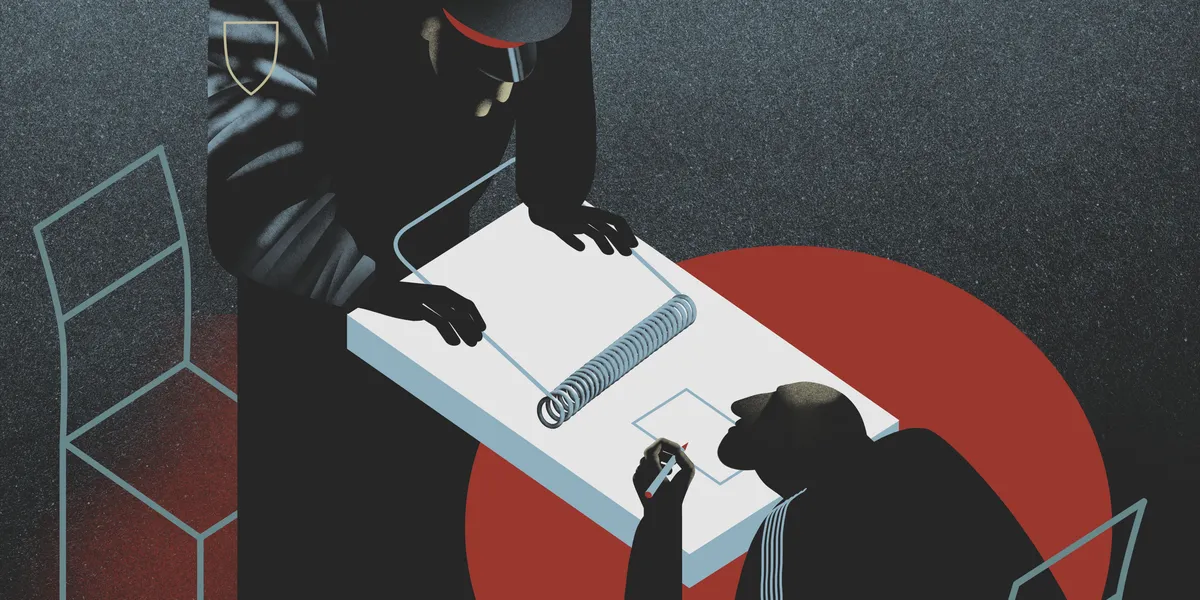
“Our superiors demanded to put the drug dealer to jail every week. A weekly drug sale! It doesn't matter how: go and do it. Whoever did the most is the best,” Hranowski describes his work to IStories.
The heads of the Samara department of the Ministry of Internal Affairs deny that any standards were set for the operatives. They speak well of their service, saying that they arrested an average of three or four people a month for selling drugs. But the authorities were allegedly unaware of any falsification. Now the chiefs of the operatives, like the investigators, are witnesses in the “Samara case”.
Andrey Zlenko, a former operative and current defendant, tells IStrories that such falsifications and the use of “regular” witnesses is common practice, but it was they who were made “scapegoats”: “Yes, not everything was perfect with the documents back then. Do you think they [the superiors] didn't know about it? Everybody knew! And they are happy now, and we are here in court to take the blame for them”.
“I'll take care of my kids so they don't become drug addicts and never become cops”
“It's a pity I didn't bury my father. I went to his grave when I got out [of prison]. I am a religious man, God said: 'Forgive,' and I forgave. Of course, there was anger in my soul: I had lost my family, I had a good woman. I had everything,” Oleg Pokashlev, who spent four years in prison in a trumped-up case, tells IStories.
Boris Astashkin, who also spent four years in prison, says that there he tried to draw attention to his case by going on hunger strike, which caused his health to deteriorate: “In the colony the doctors refused to treat me, because there was no point. There was also forced feeding. They gave me dystrophy; I was 48 kg. The guards were literally carrying me in their arms. Even these officers came to see this. Hranovsky came”.
Former police officer Sergei Hranovsky, too, does not hide his anger at the law enforcement system. According to him, he was simply fulfilling the demands of the superiors, but “broke his own life”. “The system simply ate itself up by us. I went there as a young kid from a normal family. By serving for the state, I broke my life. And it's not because of me, it's how the system works. [Because of the 'Samara case'] I ended up in a jail, my wife left me. They kept me there for two and a half years. Yes, we falsified it, let them convict us for it! I just want all this to be over. I will take care of my kids so that they don't become drug addicts and never become cops”, he tells IStories.
Andrei Zlenko, another former operative, also speaks with irritation about the system: “This is the state's drug policy! And we have to do everything like ***** with a whip. Greetings to [Minister Vladimir] Kolokoltsev! When the Ministry of Internal Affairs starts thinking properly, when everything will be all right”.
Editors: Alexandra Zerkaleva, Roman Anin